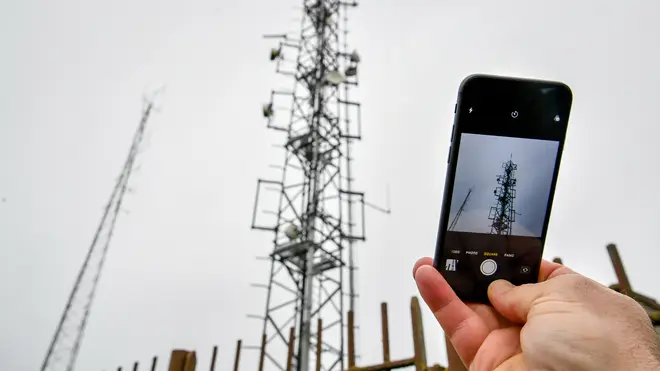
Iain Dale 7pm - 10pm
8 October 2020, 09:54

A committee called on the Government to work with allies to formulate a system to provide accountability for perpetrators of cyber attacks.
The rollout of 5G will open the UK up to security risks such as espionage, sabotage and system failure affecting individuals, government and defence, MPs have warned.
The Commons Defence Select Committee said there would be a “greater surface for illicit actions” as more devices are connected to the internet with the new wireless technology.
In a report on the security of 5G, the committee said the Government’s ambitions for the rollout are “laudable” – but warned the vendor market for 5G kit is not diverse enough.
The Government decided in July to ban Huawei from having a role in the country’s 5G network, owing to tougher US sanctions restricting Huawei’s ability to build chips.
As a result, British telecoms companies were told to remove the Chinese firm’s equipment from the 5G network by 2027 and stop purchasing new 5G equipment from it by the end of the year.
The committee said there was “no doubt that Huawei’s designation as a high-risk vendor is justified” and concluded that it “poses a significant security risk to individuals and to our Government”.
The MPs noted: “Even with the inclusion of Huawei the market was ‘sub-optimal’ and the Government’s decision to remove Huawei completely from 5G by 2027 poses a risk that could potentially result in an even less diverse market, which could bring security and resilience concerns of its own.”
They wrote: “We share the Government’s objective that the UK remains at the forefront of the 5G rollout as we move into the next technological era.
“However, 5G will increase our reliance on mobile connectivity and this represents a security risk whether from ‘espionage, sabotage or system failure’.
“Many more items will be connected to the internet through 5G meaning a greater surface for illicit actions which represents a risk to individuals as well as to defence and government.”
The committee also said there is evidence that the UK and its allies face “many malicious cyberattacks both from rogue individuals and state-sponsored attacks from states such as Russia and China”.
“These attacks are diverse in their nature and in their aims. Some attacks aim to steal individual data and state secrets whilst others seek to bring down the network in its entirety.”
The committee called on the Government to work with allies to formulate a system to provide accountability for perpetrators of international cyber attacks.
It backed the proposal to form a “D10 alliance” of the world’s 10 largest democracies to provide alternatives to Chinese technology.
The call came as US Senator Marco Rubio wrote in the Telegraph it was the responsibility of these democracies not to fall prey to the Chinese Communist Party’s “empty guarantees” or risk “long-term consequences”.
Committee chairman and Tory MP Tobias Ellwood said: “Protecting the public and preserving our nation’s security are amongst the principle responsibilities of Government. The decision to embed a technology that compromises this would constitute a gross dereliction of these duties.
“The west must urgently unite to advance a counterweight to China’s tech dominance. As every aspect of our lives becomes increasingly reliant on access to data movement we must develop a feasible, practical and cost-effective alternative to the cheap, high-tech solutions which can be preyed upon and which come stooped with conditions which ensnare a state into long-term allegiance to China.
“We must not surrender our national security for the sake of short-term technological development. This is a false and wholly unnecessary trade-off.
“A new D10 alliance, that unites the world’s ten strongest democracies, would provide a viable alternative foundation to the technological might of authoritarian states, whose true motives are, at times, murky.
“The Government’s decision earlier this year was a step in the right direction. However, current regulations are porous and legislation lacks teeth, continuing to allow telecoms companies to prioritise profit over the public and the nations’ security.
“Thankfully, Huawei, and the risks that foreign technology pose to our national security, have garnered much-needed and long-overdue attention in recent months.
“The Government must ensure that legislation is airtight, leaving no room for companies to slip through the cracks. Enacting the Telecoms Security Bill by the end of this year is imperative, as this will bring regulations up to date.”
A Government spokesman said: “The security of our telecoms networks is of paramount importance and we will not shy away from taking difficult decisions that protect our digital infrastructure while allowing us to seize the revolutionary benefits of 5G technology.
“We are pushing ahead with plans to reduce our dependence on individual suppliers and will shortly legislate to bring in one of the strongest telecoms security regimes in the world.”